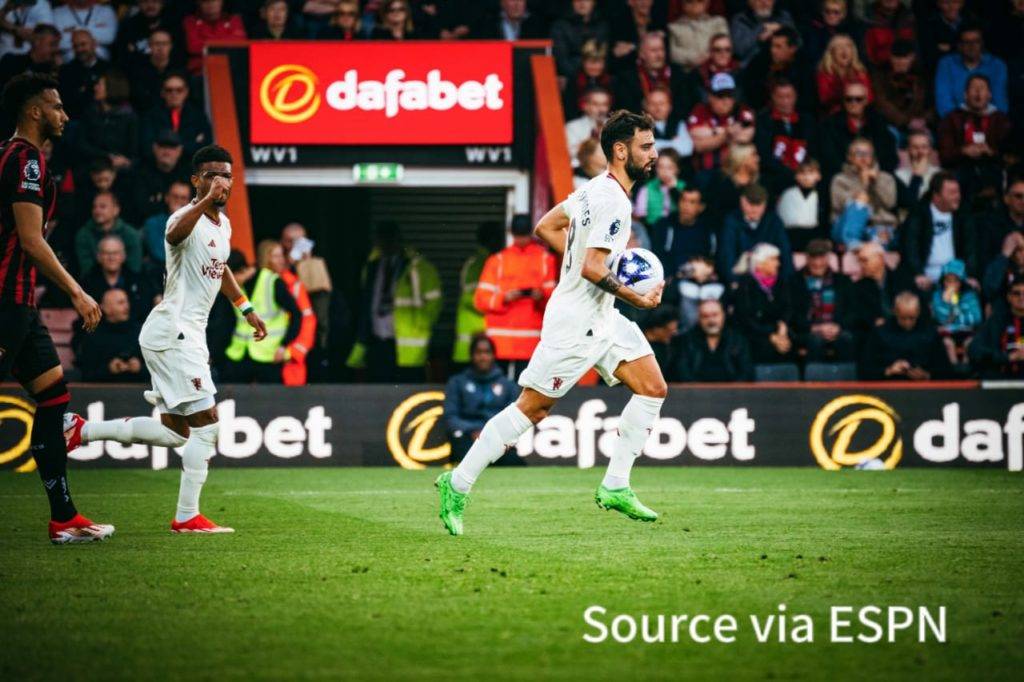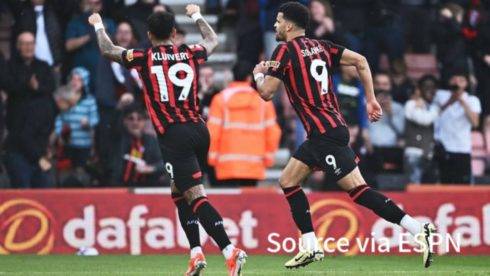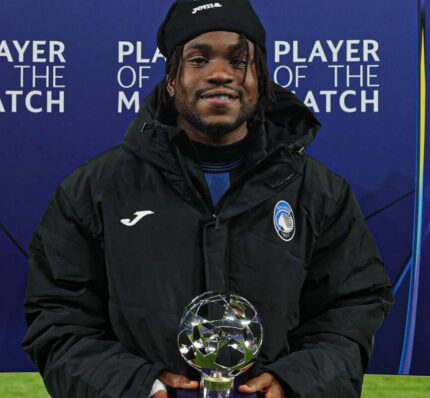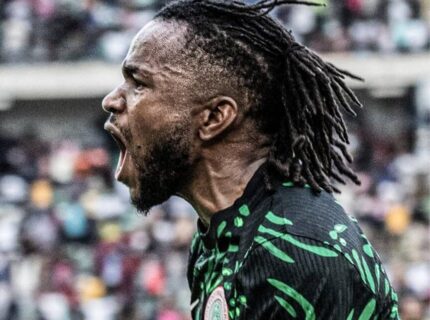The kickoff saw both Bournemouth and Manchester United eager to assert their dominance on the pitch. Bournemouth quickly showed their attacking intent with Milos Kerkez’s left-footed shot from outside the box just three minutes into the game, keeping Manchester United’s defense on their toes. This was followed by a corner conceded by Willy Kambwala, giving Bournemouth another opportunity to press forward. However, Dominic Solanke’s header was blocked, showing Manchester United’s resilience in defense early on.
As the game progressed, Bournemouth’s Marcos Senesi found himself in the referee’s book after a couple of fouls against Manchester United’s players, highlighting the physicality of the encounter. Despite Bournemouth’s efforts, Manchester United’s defense was breached by Dominic Solanke’s brilliant right-footed shot from outside the box, giving Bournemouth the lead in the 16th minute. Manchester United tried to respond through Marcus Rashford and Diogo Dalot, but Bournemouth’s goalkeeper, Milos Kerkez, was up to the task, denying them any chance of an equalizer.
Manchester United’s Response and Bournemouth’s Resilience
Manchester United, determined to get back into the game, increased their attacking pressure, with attempts from Marcus Rashford and Alejandro Garnacho. However, it was Bruno Fernandes who found the back of the net for Manchester United in the 31st minute with a clinical left-footed shot from the center of the box, leveling the score. Bournemouth didn’t sit back and immediately responded with Justin Kluivert’s right-footed shot from the left side of the box, regaining their lead just six minutes later.
Despite facing an injury setback with Luis Sinisterra, Bournemouth remained focused and made a substitution, bringing in Lloyd Kelly. The intensity of the game continued to rise, with both teams pushing for goals before the halftime whistle. Manchester United’s Bruno Fernandes came close to giving his team the lead with a shot that hit the crossbar in stoppage time, but Bournemouth’s defense held firm, ensuring they went into halftime with a narrow lead.

Key Moments and Tactical Analysis
The first half was filled with key moments and tactical battles between the two teams. Bournemouth’s strategy of pressing high up the pitch put Manchester United under constant pressure, forcing them into defensive errors and conceding fouls. Manchester United, on the other hand, looked to exploit the wings with the pace of Marcus Rashford and Diogo Dalot, but Bournemouth’s defense remained organized and compact, limiting their opportunities in front of goal.
Set pieces played a crucial role in the game, with both teams creating scoring chances from corners and free kicks. Bournemouth capitalized on their set-piece opportunities, while Manchester United failed to convert theirs, highlighting the importance of efficiency in front of goal. As the second half approaches, both managers will need to assess their tactics and make adjustments to break the deadlock and secure a positive result for their respective teams.
Injury Concerns and Player Performances
The first half also saw injury concerns for both teams, with Luis Sinisterra being forced off due to injury for Bournemouth. His replacement, Lloyd Kelly, will be crucial for Bournemouth’s defense in the second half. Manchester United will also need to monitor the fitness of their players, especially after a physical first half.
Individual performances stood out, with Dominic Solanke and Justin Kluivert impressing for Bournemouth with their goals. Bruno Fernandes was influential for Manchester United, scoring the equalizer and coming close to adding another goal with his shot hitting the crossbar. As the second half beckons, the spotlight will be on these key players to make decisive contributions and lead their teams to victory.
The second half kicked off with Manchester United making a substitution, bringing on Amad Diallo for Alejan, showing a determination to change the pace of the game. Bournemouth, leading 2-1, seemed to maintain their momentum, pressing forward with strategic plays. The match intensified with both teams vying for control of the midfield and seeking opportunities to break through the opposition’s defense.
Manchester United’s Diogo Dalot’s foul early in the half presented Bournemouth with a chance for a set-piece, but Milos Kerkez’s attempt from the resulting free kick was thwarted. The game saw several attempts from both sides, with Bournemouth’s Justin Kluivert and Dominic Solanke testing Manchester United’s defense, while United’s Kobbie Mainoo and Bruno Fernandes sought to capitalize on counter-attacks. The deadlock was broken when Manchester United was awarded a penalty after Adam Smith’s handball, expertly converted by Bruno Fernandes to level the score at 2-2, injecting new energy into the game.
As the match progressed, both teams continued to battle for dominance, with near misses and solid defensive plays keeping the intensity high. Bournemouth’s injury to Justin Kluivert led to a substitution, but the game remained tightly contested. The latter stages saw frantic attempts from both sides to snatch a late winner, but resilient defending and missed opportunities meant the match ended in a 2-2 draw, with neither team able to secure all three points. Despite the shared points, the game showcased the competitive spirit and determination of both Bournemouth and Manchester United, leaving fans eagerly anticipating their next encounters.
Tactical Shifts and Strategic Plays Define Second Half
The second half of the match between Bournemouth and Manchester United saw tactical adjustments and strategic plays from both teams as they sought to gain an advantage on the field. Manchester United’s substitution of Amad Diallo for Alejan signaled a shift in approach, while Bournemouth aimed to maintain their lead with calculated moves and solid defensive efforts.
Bournemouth’s midfield duo of Lewis Cook and Lloyd Kelly proved instrumental in orchestrating attacks, while Manchester United’s defense, led by Aaron Wan-Bissaka, stood firm against the onslaught. Set-pieces played a crucial role, with both teams creating scoring opportunities from free kicks and corners. Bruno Fernandes’ composure from the penalty spot ensured Manchester United stayed in contention, while Bournemouth’s resilience kept them in the game despite mounting pressure.
The latter stages of the match saw both teams push forward in search of a winner, resulting in end-to-end action and heart-stopping moments for fans. Despite their best efforts, neither side could find the breakthrough, settling for a hard-fought draw in the end. The second half highlighted the tactical acumen and determination of both managers and players, setting the stage for future clashes between these two fierce rivals.
VAR Drama and Late Drama as Bournemouth and Manchester United Share Spoils
The second half of the encounter between Bournemouth and Manchester United was not short of drama, with VAR playing a crucial role in shaping the outcome of the match. The tension reached its peak in the dying moments as Bournemouth was awarded a penalty after Ryan Christie was fouled in the box, only for VAR to overturn the decision, much to the relief of the Manchester United faithful.
The match saw its fair share of contentious moments, with both teams pushing the boundaries in pursuit of victory. Yellow cards were brandished as tempers flared, adding to the intensity of the occasion. Despite the late penalty drama, neither side could capitalize on the ensuing set-piece opportunities, ensuring the match ended in a pulsating draw.
The second half showcased the unpredictability of football and the fine margins that can separate victory from defeat. While Bournemouth may feel aggrieved by the VAR decision, Manchester United will be relieved to escape with a point. The drama of the second half will undoubtedly linger in the memories of fans, serving as a reminder of the excitement and unpredictability that make football the beautiful game.
Injury Concerns and Substitutions Influence Second Half Dynamics
The second half of the match between Bournemouth and Manchester United was not without its share of injury concerns and tactical adjustments, as both teams battled for supremacy on the field. Justin Kluivert’s injury forced Bournemouth into making a substitution, altering their attacking dynamics, while Manchester United’s strategic changes aimed to exploit vulnerabilities in the opposition’s defense.
Injuries disrupted the flow of the game, with stoppages leading to delays and added tension on the pitch. Substitutions provided fresh legs and new dimensions to the respective teams’ play, with managers hoping to tip the balance in their favor. However, solid defensive displays and missed opportunities meant neither team could capitalize on their numerical advantages.
As the clock ticked down, fatigue began to set in, leading to lapses in concentration and frantic attempts to secure a late winner. Despite their best efforts, both Bournemouth and Manchester United were unable to find the breakthrough, settling for a share of the spoils in the end. The second half served as a testament to the physical demands of elite-level football and the strategic nous required to navigate through a closely contested encounter.
Table of Contents
Discover more from OGM News NG
Subscribe to get the latest posts sent to your email.














